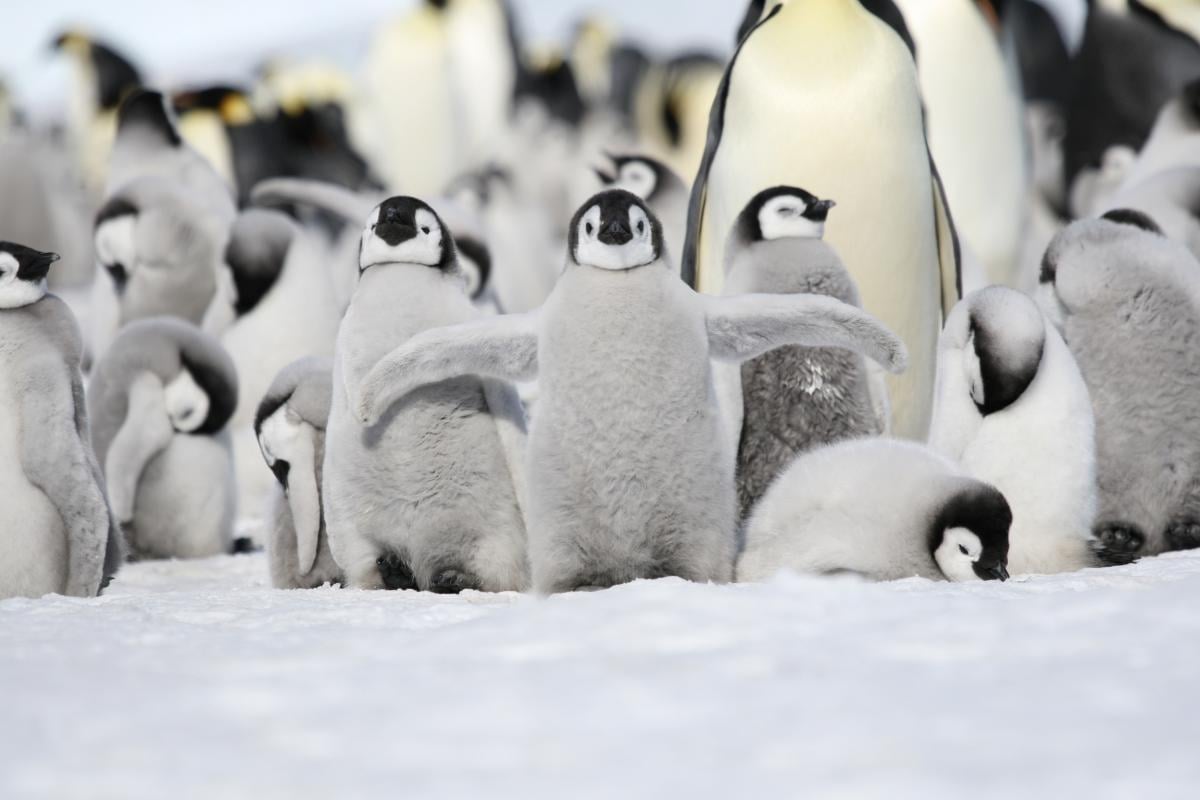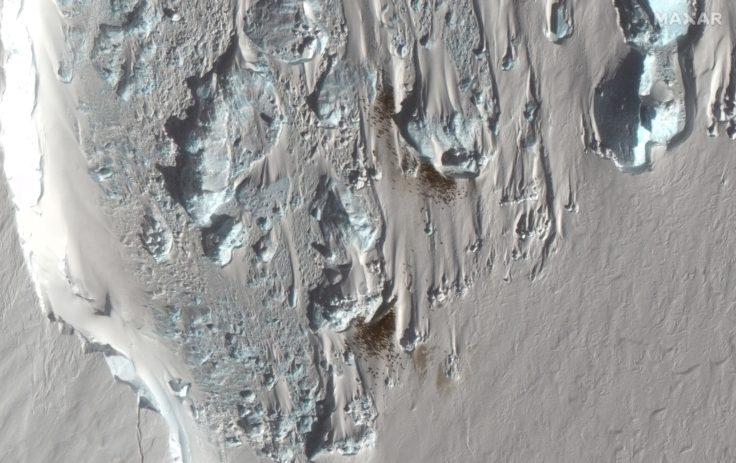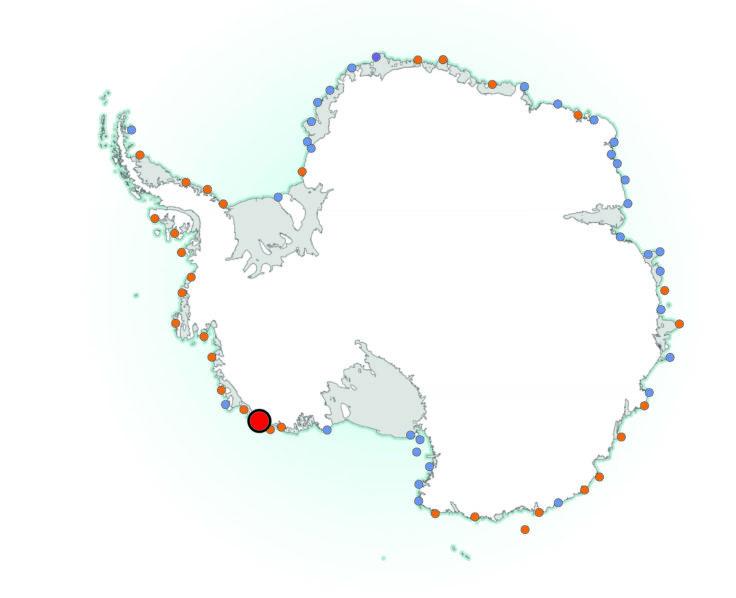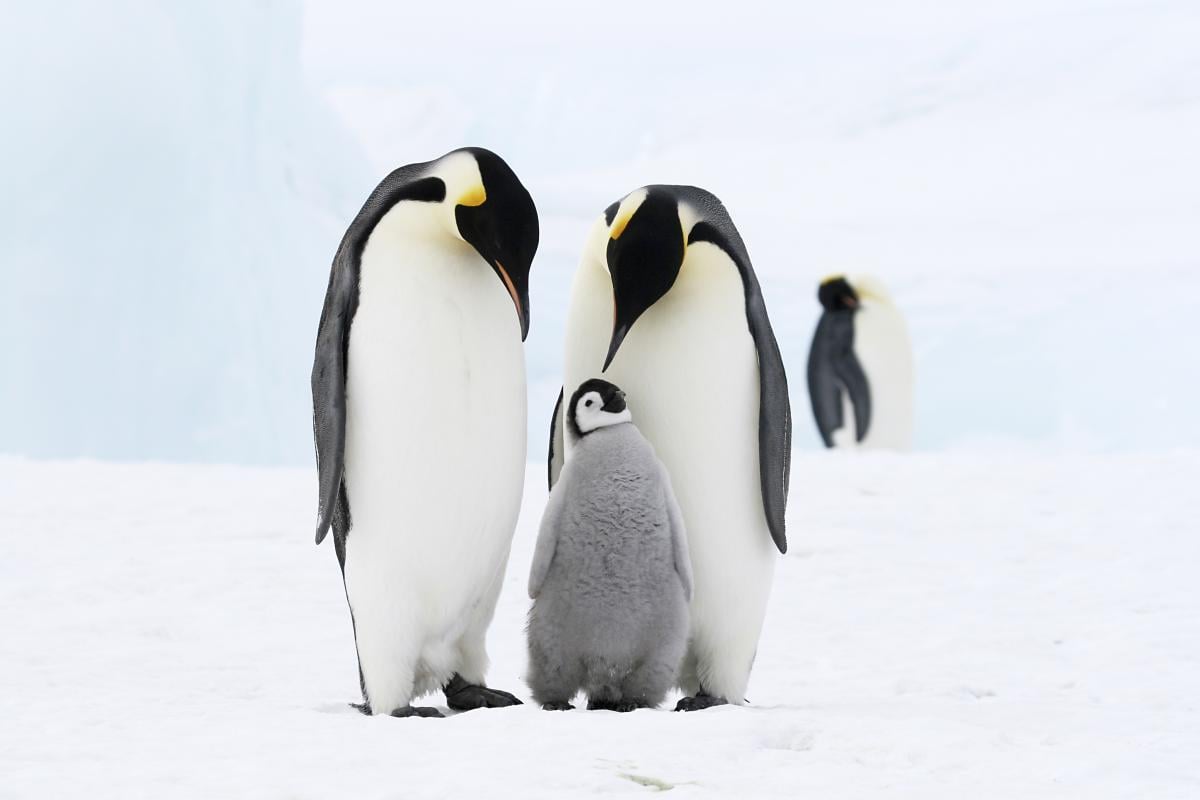According to the British Antarctic Survey, the total number of known emperor penguin habitats on the continent has reached 66.

Scientists have discovered a new emperor penguin colony in Antarctica from space using satellite mapping technology.
The colony at Cape Verleger in West Antarctica, which is home to 500 birds, was identified by guano spots (remains of seabird droppings that have decomposed naturally – ) of penguins, which contrast with the completely white snow and rocks, writes Sky News.
Thus, according to the British Antarctic Survey (BAS), the total number of known emperor penguin breeding sites along the continent’s coasts has reached 66.
Scientists studied images from the Copernicus Sentinel-2 satellite of the European Space Agency. They compared the images with high-resolution images taken by MAXAR WorldView3, considered the world’s most advanced Earth observation satellite.

“This is an exciting discovery. New satellite images of the Antarctic coastline have allowed us to find many new colonies. While this is good news, like many newly discovered sites, this colony is small and in a region that has been severely affected by the recent loss of sea ice,” said lead study author Dr. Peter Fretwell.
BAS researchers have spent the past 15 years searching for new colonies by studying satellite images of penguin guano. According to scientists, half of the known colonies were discovered using satellite images.
Emperor penguins are about 1.2 meters tall and are the largest of the 18 flightless bird species. As a rule, they settle in remote and hard-to-reach areas, which makes it difficult to study them.

They require sea ice to breed and are often found in icy climates where temperatures drop to -60°C. The species is said to be particularly vulnerable to sea ice loss, which is expected to decrease due to climate change.
According to recent BAS projections, 80% of emperor penguin colonies will be nearly extinct, meaning the population will become unsustainable by the end of the century.






